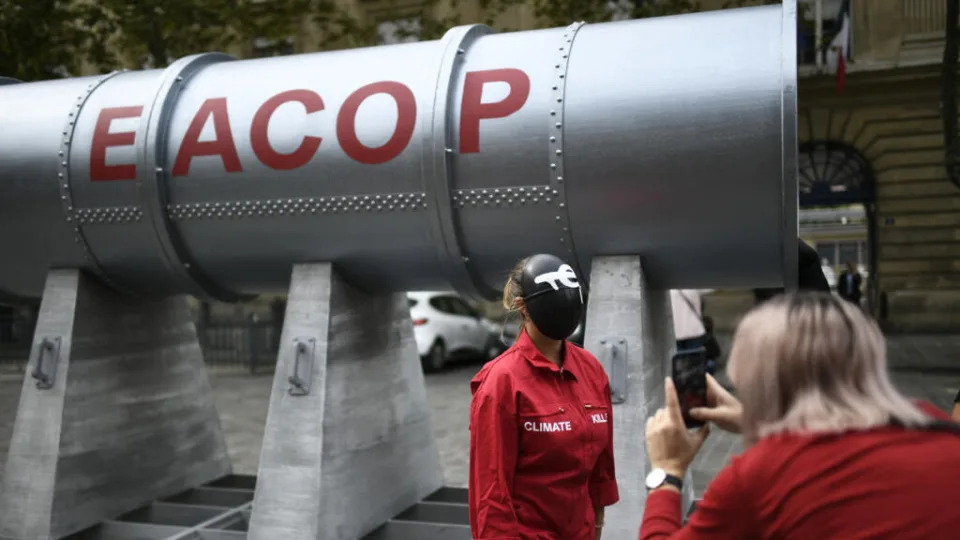Uganda-Tanzania oil pipeline project a 'carbon bomb', analysis shows
RFI Sun, November 6, 2022

The multibillion euro East African crude oil pipeline project, being financed by France's TotalEnergies and the China National offshore Company, will produce far more carbon emissions than claimed, new data shows.
Currently under construction, the EACOP pipeline will transport oil hundreds of kilometres from Uganda to a port in Tanzania.
The US-based Climate Accountability Institute (CAI) has warned EACOP will emit 379 million tonnes of carbon over its 25-year lifespan – a so-called "mid-sized carbon bomb" that exceeds France's own national estimates for 2020.
This is far greater than estimates given by pipeline builders in their environmental impact report, signed off by both Uganda and Tanzania, which CIA said accounted for a mere 1.8 percent of the project's emissions.
This is because the report, among other things, did not take into account "downstream" emissions such as transporting oil from the pipeline to global markets.
CAI carbon analyst Richard Heede said emissions estimates needed to include the "far larger supply chain emissions (98.2 percent) from maritime transport of crude oil to European and Chinese refineries" along with emissions from refining the oil and "the emissions from the fuels being used as intended by consumers".
Project opposition
The pipeline will transport oil from Murchison Falls National Park on Lake Albert in Uganda to Tanzania’s Port Tanga, 1,400 kilometres away. Tankers will transport the crude from Tanga to the ports of Shanghai, China, and Rotterdam, in the Netherlands.
And the area is an active seismic zone with regular earthquake activity.
No comments:
Post a Comment